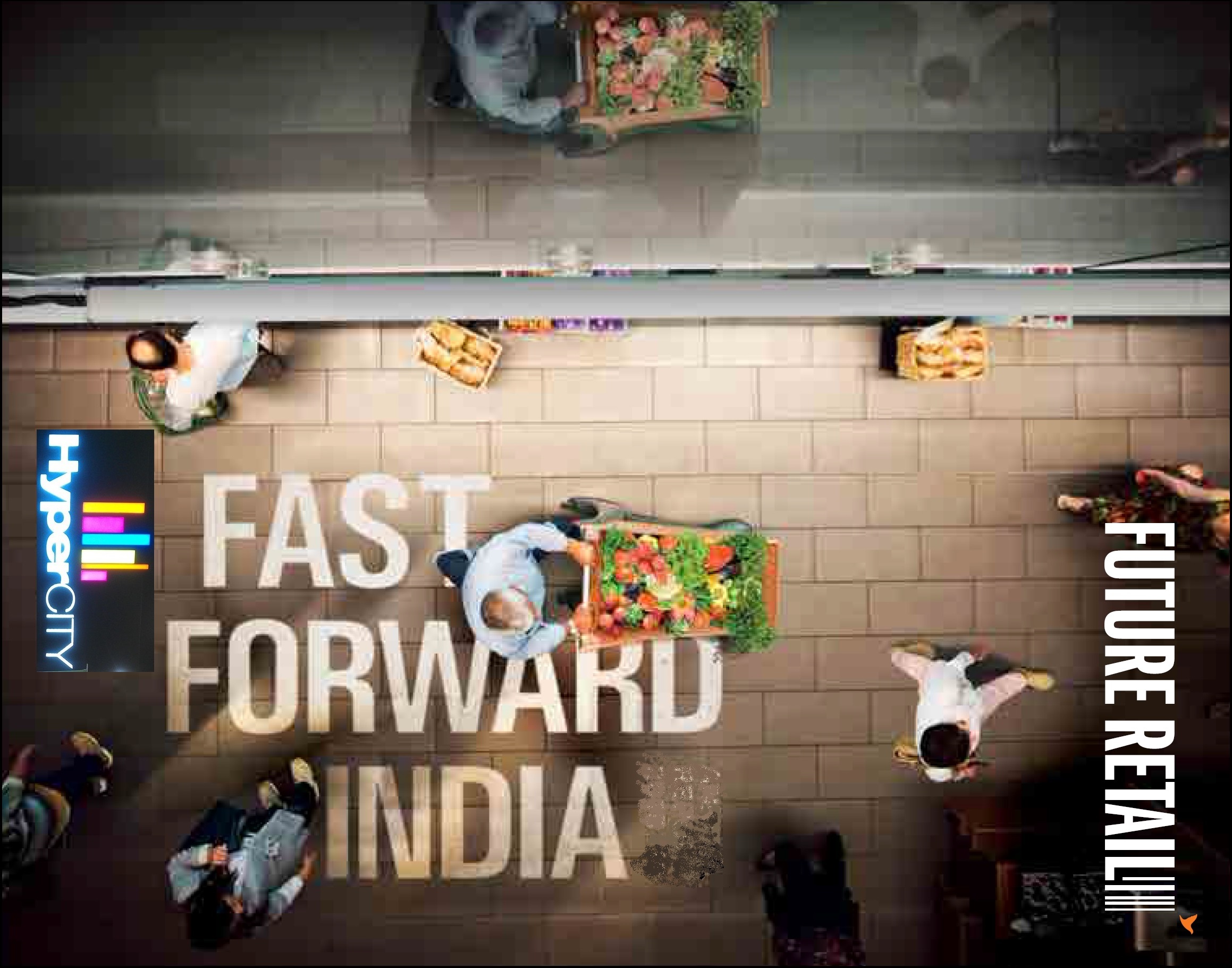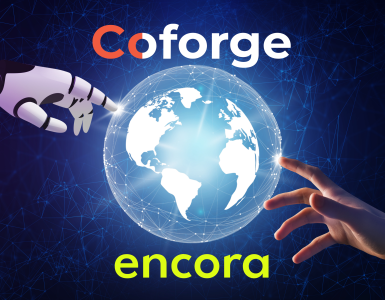M&A and retail industry perspective
For the retail industry as a whole, Indian companies hold a large appetite for mergers and acquisitions (M&A) among consumer products and retail companies. The Future Retail-HyperCity deal is a validation and more such deals will provide opportunities for consolidation which will add scale and efficiency, critical for the success of grocery retail. Moreover, companies are also looking for transformative deals to fundamentally alter their business strategy and disrupt the market.
The market size of food and grocery sector is around Rs 30 lakh crore, of which the organized share is just about 3%. The pace of change – from unorganized to organized — has now accelerated after the implementation of goods and services tax and there will be more consolidation in retail business.
Future Retail Ltd (FRL) is the flagship company of Future Group, India’s retail pioneer catering to the entire Indian consumption space, operate multiple retail formats in both the hypermarket, supermarket and home segments of the Indian consumer. Current market capitalisation of the company is around Rs 25,470 crore and its shares are listed on BSE and on NSE.
HyperCity Retail (India) Ltd is unlisted company and apart of K. Raheja Corp Group which holds 49% and balance 51% is held by Shopper Stop Ltd (Holding company), the listed entity. Company is mainly into Retail business and does not have any overseas presence, it has 19 operating stores as on the date and area under operation is around 1.24 mn sq. ft., reported turnover for the year ended March 2017 is Rs 1,155 crore and networth of the company stood at merely Rs 11.45 crores as on March 2017.
Past acquisitions of Future Retail
Future group has been expanding its brand presence and footprint through the acquisition of numerous small regional stores. In fact, five years ago Kishore Biyani had chalked out small format stores as the first of the five pillars of his group’s long-term retail strategy.
In November last year, Future Retail acquired the retail and allied businesses of Hyderabad-based Heritage Foods Ltd. Earlier it had acquired Delhi-based Big Apple and Easy Day chain from Bharti Enterprises. It had purchased Nilgiri’s, a south India-based chain, in November 2014. The group made its foray in e-commerce segment last year by taking over Rocket Internet-backed online furniture and home furnishings store FabFurnish.com in an all-cash deal.
In 2012, Futures group had acquired Big Apple stores from Delhi-based Express Retail for Rs 61 crore. Express Retail had 65 stores in the National Capital Region. The acquisition helped Futures Retail to ramp up revenue. Similarly, in 2014, Futures Retail acquired Nilgiris, a Bengaluru-based supermarket chain from private equity firm Actis for Rs 300 crore. The deal added 140 stores to Future Retail’s kitty. To further consolidate, Futures retail acquired Bharti Retail‘s Easy Day which had 200 stores in over 100 cities in north India.
Last year, Future Retail acquired the retail business of Heritage Foods in an all-stock deal. Through this deal, Future Retail got access to 124 stores located in Hyderabad, Chennai and Bangalore along with a few allied businesses.
So, Future Retail’s merger with Bharti Retail and Big Apple had consolidated the group’s presence in north India with over 250 stores and the company gained traction in south India through the acquisitions of Nilgiri’s and Heritage. By acquiring HyperCity, Future Retail can now consolidate its position in western states and also his hypermarket vertical. However, Kishore Biyani had to sell off the Pantaloons department store chain in 2012 to Aditya Birla Group due to cash crunch. These acquisitions have helped Future Retail to expand in markets and grow.
Transaction
- On October 9, 2017, Future retail made an announcement of acquisition of HyperCity, total purchase consideration is around Rs 655 crore (approx) for acquisition of 100% equity shares capital and consideration will be discharged
- Partly by issue of equity shares subject to maximum and in aggregate of up to 93,10,987 equity shares of Rs 2 each, fully paid-up of FRL at a premium of Rs 535 per equity share aggregating to Rs 500 crore (approx.) to the equity shareholders of HyperCity on a proportionate basis.
- Partly by payment in cash up to an amount of Rs 155 crore (approx.)
- Post-acquisition HyperCity will become wholly owned subsidiary of FRL.
- As per there holding Shopper stop will receive Rs 334 crore (approx.) for their holding in HyperCity. Shoppers Stop will receive 47,56,823 shares of Rs2 each of FRL (i.e. 1 share of FRL for 16.22 share of HyperCity) and balance Rs 79.18 crore in cash.
- HyperCity’s enterprise value, which includes debt and cash in hand, is Rs 911 crore.
Financials
Table 1: Financials (All Figures in Rs crore)
| Particulars | Future Retail | HyperCity |
| P&L Extract – Mar-17 | ||
| Total Revenue | 17,099 | 1,167 |
| Finance Cost | 204 | 46.45 |
| PAT | 368 | -83.99 |
| Balance Sheet extract- Mar-17 | ||
| Total Equity (Equity and Reserves) | 2,554 | 11 |
| Borrowings (Current and Non-Current) | 1,078 | 292 |
| Non-current Assets | 916 | 332 |
| Current Assets | 6,021 | 227 |
FRL’s Pre-Post Acquisition Holding
Table 2:Based on equity shareholding of FRL as on Sept-17
| Particular | Pre | Post | ||
| Nos | % | Nos | % | |
| Promoter Group Holding | 23,37,40,436 | 47.72% | 23,37,40,436 | 46.83% |
| Public | 25,60,71,345 | 52.28% | 25,60,71,345 | 51.30% |
| Issued to Shopper Stop | – | – | 47,56,823 | 0.95% |
| Issued to Raheja Group | – | – | 45,54,164 | 0.92% |
| Total | 48,98,11,781 | 100.00% | 49,91,22,768 | 100.00% |
Post-Acquisition Shoppers Stop & Raheja group will be minority shareholder in the FRL and there will not be any share issued to the individual shareholders of these companies.
Transaction Valuation
- Book Value per share of HyperCity is Rs 0.79 and consideration received per share is Rs 43.3687 i.e. premium is almost 54 times of the book value.
- Area under operation of HyperCity is around 1.24 mn sq. ft., based on total consideration, Rs. 5,282 is paid for each sq. ft. by FRL.
- Equity consideration is fixed at Rs 537 per share (FV Rs 2/share) which is higher than its closing price of Rs 527.65 a share on the day the deal was announced.
Capital Gain and C/f Losses
Transaction is sale transaction and hence attract capital gain tax in the hand of seller (shopper stop and Raheja group).Sales consideration is market value of shares received plus cash after deducting investment cost capital gain tax needs to be paid.
HyperCity is having an accumulated loss of Rs 712 crore, post-acquisition it will be become wholly owned subsidy of FRL and carried forward losses will not be available for set-off by FRL. Because of non-compliance of Sec 79 of The Income Tax Act,1961
Benefit to HyperCity shareholders
- Deal provided a major relief to the shareholders (Shoppers Stop and Raheja Group) as company is battling with the huge pile of accumulated loss of around Rs 712 crore and almost eroded net worth.
- Helps shoppers stop to cut down its subsidiary loss on consolidated basis and during 2016-17 company has also recognised an impairment of Rs 36 crore for diminution in the value of investment it made in HyperCity.
- Also in order to pare debt, Shoppers Stop had announced a 5% stake sale in the company to Amazon NV Holdings LLC, the investment arm of the world’s largest online retailer Amazon Inc, for Rs 179.25 crore. The partnership with e-commerce major was meant to help Shoppers Stop tap customers from non- metro markets and scale up its financial performance.
Benefit to FRL
- Deal will add 10% to Big-Bazaar’s current retail space
- Provide an access to a premium brand and great locations in main metros
- FRL’s FBB store and Food Bazaar will get place in HyperCity stores which will help to boost footfall and give greater options to FRL’s customers.
- The merger will help Future Group get consolidation in the grocery space and enable it to sell its private label consumer products. Around 65% of HyperCity’s business comes from its food portfolio, with garments accounting for 17% and the rest from other categories. For Big Bazaar, 70% of sales are from higher-margin, non-food categories like fashion and homeware. Even within food, 30% of sales from private labels. After the M&A deal is complete, Future Group will introduce higher merchandise mix, especially in value fashion, to boost HyperCity’s profitability
Exit to HyperCity promoter
Since FRL will be holding 100% stake in HyperCity and it will be its wholly owned subsidiary, post-closing FRL shall have all the rights to control Board Constitution, share capital and operation of HyperCity and promoters of HyperCity will have no role to play in it.
Other Factors
- How footfall will be increased at HyperCity stores to attract more people and their conversion into customers
- Competition from Online Players such as Flipkart and Amazon which are gaining customers selling like a hotcake and giving tough competitions to physical retail stores.
- HyperCity having a huge accumulated loss and turning it into profitable will require revamping entire strategy and resources.
Competition and market standing
Future Retail is the biggest player in terms of revenue but D-mart is having almost double the margins as compared to Future Retail. Aditya Birla fashion and Shoppers Stop are comparably smaller and majorly present in retail garments and struggling to maintain their margins.
Table 3: Mar-17 figures (Rs in crore)
| Company | Total Revenue | EBIT | EBIT margin | PAT | PAT Margin |
| Future Retail | 17,099 | 573 | 3.35% | 368 | 2.15% |
| D-Mart | 11,926 | 869 | 7.29% | 479 | 4.01% |
| Aditya Birla Fashion | 6,671 | 233 | 3.50% | 54 | 0.80% |
| Shoppers Stop* | 4,935 | 42 | 0.85% | -78 | -1.59% |
*including HyperCity
Conclusion
FRL being one of the major retail players acquires HyperCity retail which is significantly smaller in size and having huge losses. This acquisition will result in consolidation of retail business of FRL and increase its footfall in Hypermarket segment.
The key to success in today’s retail business is to attract and retain customers and improve on the margin. The next logical step for Future Retail would be to set its sight on online retail, the way Tata group and Godrej group has done to acquire small online app-based retailers to set up own online sales operations. This will make Future group an omni-channel retailer
From the point of view of HyperCity shareholders this is a good deal considering the future sustainability of the company.
Other players will have to evaluate their strategy to survive as margins are very low and left with option of merging or exit.




